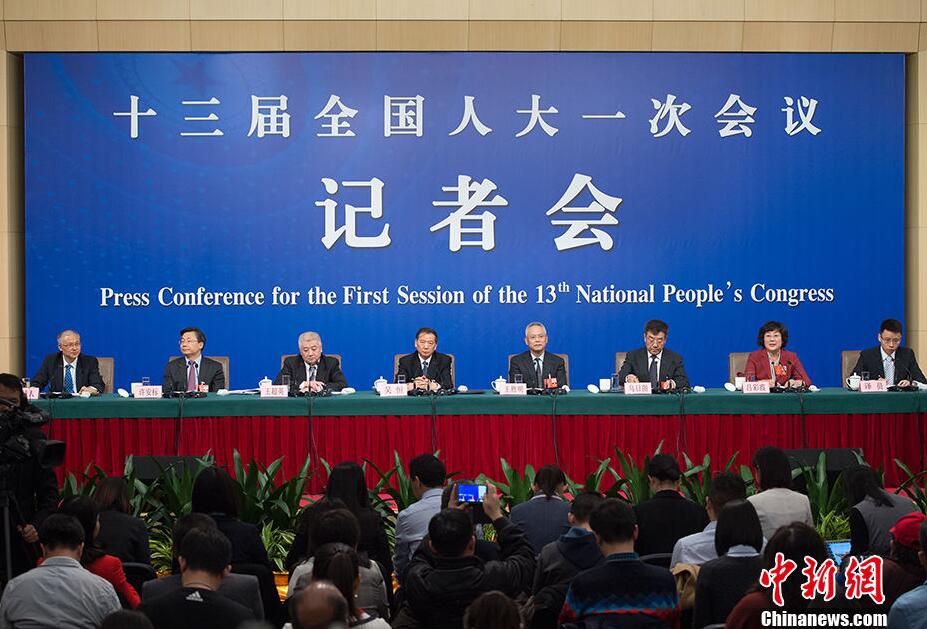
Logistics management system is a software system used to manage and optimize logistics operations.It improves logistics efficiency and reduces costs by integrating and automating various aspects of logistics activities, including order processing, inventory management, transportation arrangement, cargo tracking, etc.
Logistics information management system refers to the logistics management of enterprises, including the information management system of third-party logistics. The system involves warehousing operation management, transportation and loading management, financial management, human resources management and other contents.
Logistics ERP management system refers to a logistics information management system developed based on the ERP concept and logistics business characteristics. It integrates the logistics resources and processes of the enterprise, including transportation, warehousing, packaging, distribution, etc.
The logistics erp management system includes the delivery business management module: waybill preparation, including the entry, printing, storage, classification, retrieval, statistics and other functions of waybills.The goods are transferred, and the receipt is directly diverted to the third-party carrier company for reconciliation of the transit goods.
Generally speaking, the ERP system is a management information system that comprehensively integrates logistics, capital flow and information flow.
Logistics Information Technology refers to the information technology used in all aspects of logistics.
1. Continuously strengthen the level of logistics information management and introduce advanced logistics management experience. Streamline the actual workflow. Now that the internal process has been sorted out, information transformation and construction should be carried out on this basis.
2. Enterprise management belongs to the "supervisor" of logistics management, and supervises the operation of the logistics information system by subordinate employees reasonably, legally, and correctly to ensure the smooth and efficient flow of logistics. In other words, logistics information can clarify the responsibilities of staff, which is conducive to the management of employees' performance and other conditions.
3. Quotation management includes importing quotations and setting shipping methods. Operation management includes order recording, automatic minimum price division and adjustment, shipment, order exchange, return and other processes. Customer service management includes the processing and automatic inspection of problems.
4. The second level is management control, which requires focusing on functional measurement and reporting. Functional measurement is necessary to provide management feedback on service level and resource utilization. Therefore, management control involves evaluating past functions and identifying various options.
Logistics system is a management system, which is generally used to manage vehicles, drivers, routes, customers, contracts, warehouses, finance, etc.
There are seven elements in the logistics system: fluid, carrier, flow, flow, flow, flow rate and flow efficiency. The logistics system has seven elements: fluid, carrier, flow, flow, process, flow rate and flow efficiency. Fluid: refers to the goods transported through logistics.
The functional elements of the logistics system are generally considered to include transportation, storage and custody, packaging, loading and unloading, circulation and processing, distribution, logistics information, etc. If we examine the actual work links of logistics activities, logistics consists of the above seven specific tasks. In other words, logistics can realize the above seven functions.
As for transportation, some people think that logistics is transportation, which is not comprehensive. Transportation can be said to be the driving force of logistics. It is a mechanical carrier. It transports goods from one place to another in various ways, so that the displacement of goods can be realized.
The study of related logistics activities from the perspective of enterprises is a typical field of specific and micro-logistics activities. (5) International logistics. International logistics is a large-scale logistics field with the rapid development of modern logistics system. International logistics is a logistics activity that accompanies and supports international economic exchanges, trade activities and other international exchanges.
Five goals of the logistics system: the objectives of the logistics system, that is, the capabilities required by the established logistics system, generally have five aspects: service objectives;Fast and timely goals; saving goals; scale optimization goals; inventory adjustment goals.

DigiPlus stock-APP, download it now, new users will receive a novice gift pack.
Logistics management system is a software system used to manage and optimize logistics operations.It improves logistics efficiency and reduces costs by integrating and automating various aspects of logistics activities, including order processing, inventory management, transportation arrangement, cargo tracking, etc.
Logistics information management system refers to the logistics management of enterprises, including the information management system of third-party logistics. The system involves warehousing operation management, transportation and loading management, financial management, human resources management and other contents.
Logistics ERP management system refers to a logistics information management system developed based on the ERP concept and logistics business characteristics. It integrates the logistics resources and processes of the enterprise, including transportation, warehousing, packaging, distribution, etc.
The logistics erp management system includes the delivery business management module: waybill preparation, including the entry, printing, storage, classification, retrieval, statistics and other functions of waybills.The goods are transferred, and the receipt is directly diverted to the third-party carrier company for reconciliation of the transit goods.
Generally speaking, the ERP system is a management information system that comprehensively integrates logistics, capital flow and information flow.
Logistics Information Technology refers to the information technology used in all aspects of logistics.
1. Continuously strengthen the level of logistics information management and introduce advanced logistics management experience. Streamline the actual workflow. Now that the internal process has been sorted out, information transformation and construction should be carried out on this basis.
2. Enterprise management belongs to the "supervisor" of logistics management, and supervises the operation of the logistics information system by subordinate employees reasonably, legally, and correctly to ensure the smooth and efficient flow of logistics. In other words, logistics information can clarify the responsibilities of staff, which is conducive to the management of employees' performance and other conditions.
3. Quotation management includes importing quotations and setting shipping methods. Operation management includes order recording, automatic minimum price division and adjustment, shipment, order exchange, return and other processes. Customer service management includes the processing and automatic inspection of problems.
4. The second level is management control, which requires focusing on functional measurement and reporting. Functional measurement is necessary to provide management feedback on service level and resource utilization. Therefore, management control involves evaluating past functions and identifying various options.
Logistics system is a management system, which is generally used to manage vehicles, drivers, routes, customers, contracts, warehouses, finance, etc.
There are seven elements in the logistics system: fluid, carrier, flow, flow, flow, flow rate and flow efficiency. The logistics system has seven elements: fluid, carrier, flow, flow, process, flow rate and flow efficiency. Fluid: refers to the goods transported through logistics.
The functional elements of the logistics system are generally considered to include transportation, storage and custody, packaging, loading and unloading, circulation and processing, distribution, logistics information, etc. If we examine the actual work links of logistics activities, logistics consists of the above seven specific tasks. In other words, logistics can realize the above seven functions.
As for transportation, some people think that logistics is transportation, which is not comprehensive. Transportation can be said to be the driving force of logistics. It is a mechanical carrier. It transports goods from one place to another in various ways, so that the displacement of goods can be realized.
The study of related logistics activities from the perspective of enterprises is a typical field of specific and micro-logistics activities. (5) International logistics. International logistics is a large-scale logistics field with the rapid development of modern logistics system. International logistics is a logistics activity that accompanies and supports international economic exchanges, trade activities and other international exchanges.
Five goals of the logistics system: the objectives of the logistics system, that is, the capabilities required by the established logistics system, generally have five aspects: service objectives;Fast and timely goals; saving goals; scale optimization goals; inventory adjustment goals.

UEFA Champions League live streaming free
author: 2025-01-12 09:09UEFA Champions League live streaming app
author: 2025-01-12 09:35UEFA Champions League live streaming free
author: 2025-01-12 08:40 bingo plus update today
bingo plus update today
535.46MB
Check Hearthstone deck
Hearthstone deck
617.21MB
Check Casino free 100 no deposit
Casino free 100 no deposit
733.37MB
Check Hearthstone Arena Tier List
Hearthstone Arena Tier List
723.85MB
Check UEFA EURO
UEFA EURO
428.63MB
Check Champions League
Champions League
416.83MB
Check TNT Sports
TNT Sports
986.82MB
Check Casino Plus free 100
Casino Plus free 100
571.77MB
Check PAGCOR online casino free 100
PAGCOR online casino free 100
286.97MB
Check TNT Sports
TNT Sports
245.92MB
Check Hearthstone deck
Hearthstone deck
318.63MB
Check Hearthstone Wild Decks
Hearthstone Wild Decks
725.95MB
Check UEFA European championship
UEFA European championship
785.93MB
Check bingo plus update today
bingo plus update today
829.59MB
Check Casino Plus
Casino Plus
929.68MB
Check DigiPlus
DigiPlus
594.66MB
Check Casino redeem
Casino redeem
343.66MB
Check Casino Plus app
Casino Plus app
114.75MB
Check UEFA live free
UEFA live free
327.75MB
Check UEFA Champions League live
UEFA Champions League live
147.83MB
Check UEFA live free
UEFA live free
761.64MB
Check Champions League
Champions League
275.25MB
Check Hearthstone arena deck Builder
Hearthstone arena deck Builder
919.23MB
Check bingo plus update today
bingo plus update today
431.76MB
Check Casino free 100 no deposit
Casino free 100 no deposit
441.53MB
Check Hearthstone arena deck Builder
Hearthstone arena deck Builder
568.62MB
Check Hearthstone arena class win rates reddit
Hearthstone arena class win rates reddit
783.59MB
Check App to watch Champions League live free
App to watch Champions League live free
858.56MB
Check UEFA live free
UEFA live free
911.34MB
Check Europa League app
Europa League app
347.54MB
Check UEFA live free
UEFA live free
577.72MB
Check UEFA European championship
UEFA European championship
598.49MB
Check UEFA Europa League
UEFA Europa League
628.87MB
Check DigiPlus
DigiPlus
645.61MB
Check DigiPlus fair value
DigiPlus fair value
268.54MB
Check UEFA Champions League
UEFA Champions League
421.21MB
Check
Scan to install
DigiPlus stock to discover more
Netizen comments More
485 DigiPlus fair value
2025-01-12 10:02 recommend
876 PAGCOR online casino free 100
2025-01-12 08:55 recommend
1766 Casino redeem
2025-01-12 08:53 recommend
1462 UEFA Champions League live
2025-01-12 07:52 recommend
1483 casino plus free 100
2025-01-12 07:27 recommend